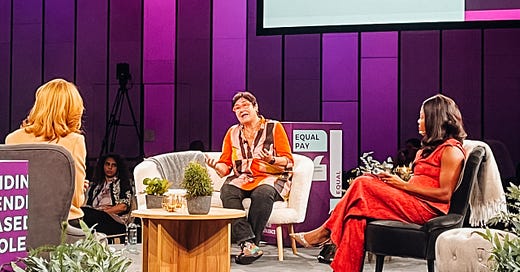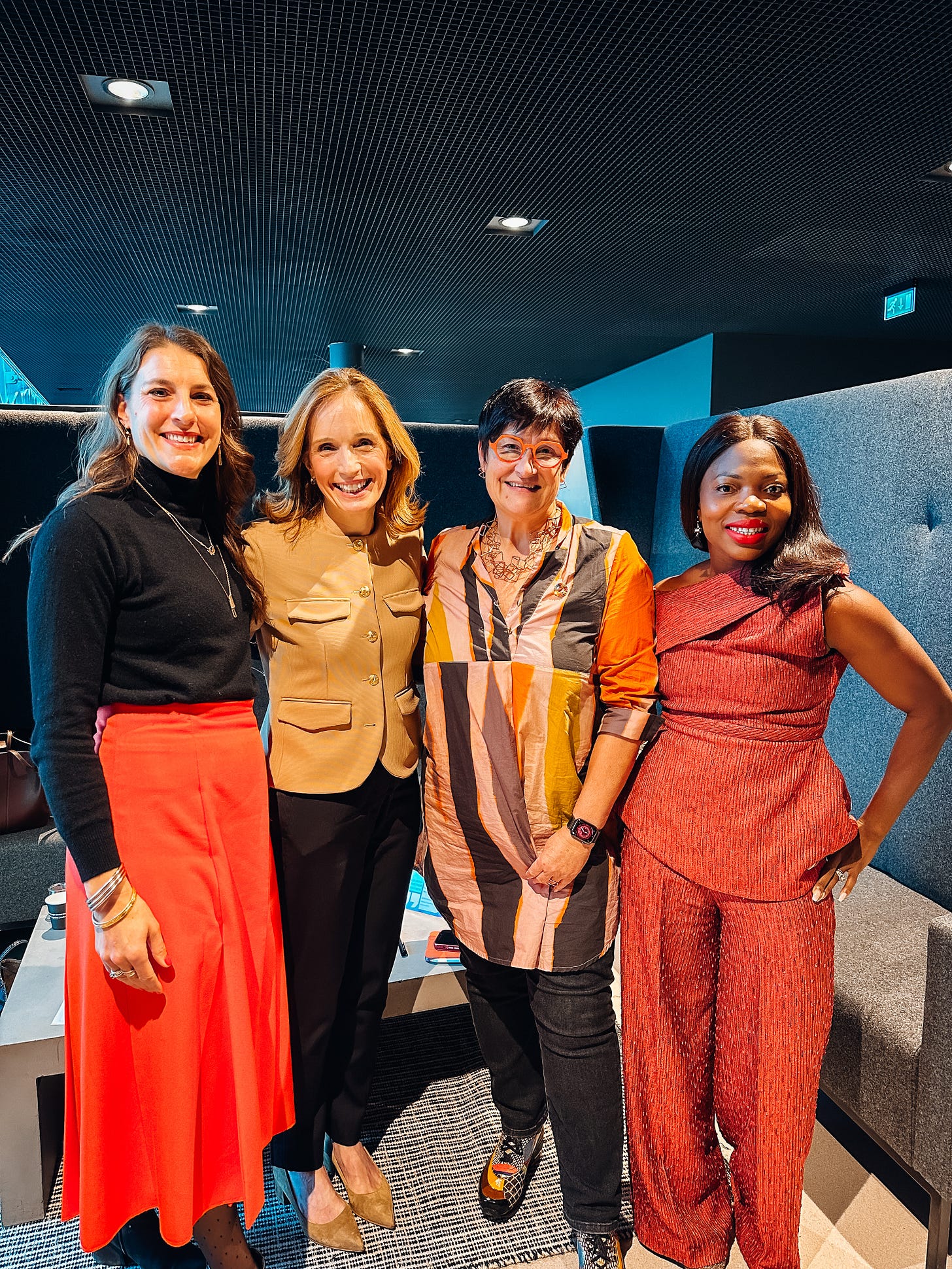Last week, I had the profound honor of not only attending but also speaking at the Reykjavík Global Forum, where leaders from across the globe gathered to advance gender equity. Our 20-minute session with my fellow panelist on women’s health and care policy barely scratched the surface of such a complex issue, but I want to share one critical trend we must address: caregiving stress and its devastating impact on women’s health.
Today, more women are experiencing alarming levels of postpartum depression, chronic stress, and exhaustion, and in many cases, they’re developing autoimmune diseases directly tied to the unrelenting demands of caregiving. These women are the backbone of their families and communities—caring for children, aging parents, partners, and households—yet they often neglect their own well-being. Infact, women exercise less than men, and this fitness shortfall can have serious implications on women’s health and quality of life. On top of this, societal pressures require them to excel at work, maintain appearances, and perform at peak levels, compounding their mental, physical, and emotional strain.
The Care Gap: A Crisis of Health and Equity
The care gap is at the heart of this issue. Women are bearing the brunt of unpaid labor, sacrificing their health, economic opportunities, and even political influence. According to the WHO, women perform over three times more unpaid caregiving than men globally. The cost? Increased burnout, diminished economic potential, and health crises that ripple through families and communities.
Health Impacts of Caregiving Stress
Mental Health: A study by the American Psychological Association found that 66.6% of unpaid caregivers for older adults reported at least one adverse mental or behavioral health symptom, such as anxiety or depression, in the 30 days before the survey.
Physical Health: Caregivers often experience higher levels of stress hormones and lower levels of antibody response, indicating a weakened immune system. This physiological stress can lead to chronic health issues, including hypertension and cardiovascular diseases.
Economic Impact: The U.S. Department of Labor reports that unpaid family caregiving reduces a mother's lifetime earnings by 15%, averaging an employment-related cost of $295,000 over a lifetime. This financial strain further exacerbates stress and health issues.
If we are to ask women to show up in the workplace, in leadership roles, and in their businesses, we must also solve for care. This requires bold, innovative solutions and a global commitment to address the care gap. Here’s how we can start:
Solving for Care: Key Strategies
Universal Paid Leave Policies
Studies show that paid family leave not only improves maternal health but also creates stronger family bonds. Countries with robust leave policies see fewer women forced to choose between their health and their careers.Affordable, Accessible Childcare and Aging Care
Governments and businesses must invest in subsidized childcare and eldercare services, reducing the emotional and financial strain on women.Caregiver Health Support
Employers and healthcare providers need to integrate caregiving stress management into routine health care for women, ensuring access to mental health resources, stress reduction programs, and comprehensive health screenings.Redistributing Care
Addressing caregiving as a societal responsibility, not a women’s issue, is critical. This means engaging men at home, implementing workplace flexibility for all genders, and encouraging community care systems.Advocating for Policy Change
Policies like the National Domestic Workers Bill, social protections for care workers, and investment in care infrastructure are foundational to reducing the burden on women.
The Call to Action
The path forward requires a collective effort. Women deserve the opportunity to thrive without compromising their health or well-being. Solving the care gap is not just about alleviating women’s burdens—it’s about creating a healthier, more equitable society for everyone.
This conversation must continue, and I am committed to being part of the solution. Whether through my work at Caring Africa or The Care Gap, collaborations with policymakers, or conversations with employers, we must prioritize care as a cornerstone of women’s health and equity.
Let’s take this momentum forward and make care a global priority. How can you contribute to solving the care gap? Share your thoughts—I’d love to hear from you!
PS: Join us if you can for The Care Gap Summit! Register now and watch later if you must! See you soon?
The Care Gap newsletter is written by Blessing Oyeleye Adesiyan, Founder & Chief Care Economist at The Care Gap & Caring Africa on a mission to close the care gap for good for families, workplaces, and economies globally through content, policy, and technology. Follow @blessing.adesiyan @thecaregap @caringafrica and @caring.blocks for more.





